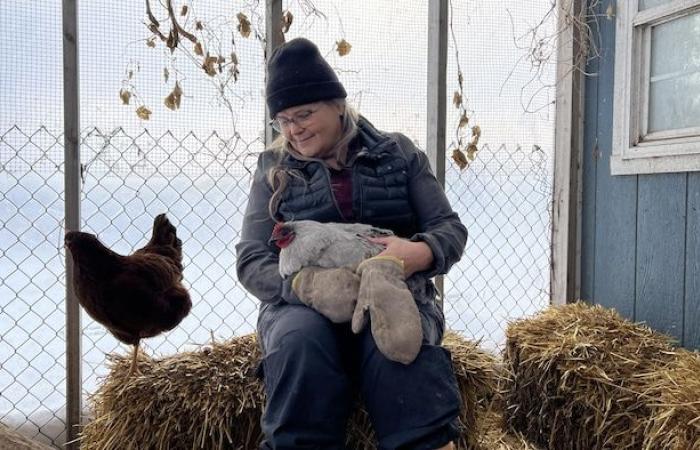Two weeks ago, a case of H5N1 avian influenza was detected at a poultry farm in Portage la Prairie, Manitoba, prompting the implementation of several province-wide measures.
At the Assiniboine Park Zoo, the precautionary measures put in place since the first cases of H5N1 influenza detected in 2021 are still in effect.
Director of Zoological Operations Chris Enright remembers that year when birds at the Winnipeg Zoo were affected by the virus.
As soon as the first cases were discovered, adjustments were quickly made to control interactions between domestic and wild birds, thus ensuring their safety.
In 2021 and 2022, some species were moved indoors, and fencing was installed to prevent contact with wild birds, particularly regarding access to food and water.
Chris Enright specifies that zoo staff are trained to recognize the symptoms of bird flu and that veterinarians are available in the event of contamination.
Such measures are particularly useful for those who work with poultry, especially during the spread of H5N1 in North America, where it mainly affects poultry and, to a lesser extent, cows.
Open in full screen mode
Director of Zoological Operations at Assiniboine Park Zoo, Chris Enright, describes the actions the zoo took in 2021 and 2022 when some of its birds were sickened with H5N1 avian influenza.
Photo: - / Juliette Straet
Health Safety Measures at Aurora Farm
At Aurora Farm, in Saint-Norbert, Louise Perret-Gentille raises various animals, including several chickens, in her yard. She carefully monitors the health of her animals.
It is important to have a clean, healthy, well-lit and well-ventilated chicken coop.
she declares.
She also takes care to avoid any interaction between her chickens and wild birds.
Open in full screen mode
In Saint-Norbert, Manitoba, Louise Perret-Gentille cares about the health of her chickens at Aurora Farm.
Photo: - / Juliette Straet
The farmer nevertheless remains optimistic because, according to her, the poultry species present in her henhouse are among the most resistant to diseases.
They are known for their ability to adapt to various conditions and, above all, for their better health compared to hens raised in commercial chicken coops
she said.
Essential precautions for handling infected poultry
Those who work with poultry should follow certain precautions if they encounter a bird infected with H5N1 flu, according to Matt Dyson, a researcher for the conservation organization Ducks Unlimited Canada.
The main advice is not to handle these birds
he explains.
If necessary, he recommends using two plastic bags to collect them, while wearing gloves and following rigorous hygiene practices after handling.
Although transmission of H5N1 influenza among humans is rare, those who work with poultry are at higher risk. Matt Dyson also advises reporting any sightings of sick or dead birds to health authorities.
With information from Juliette Straet







